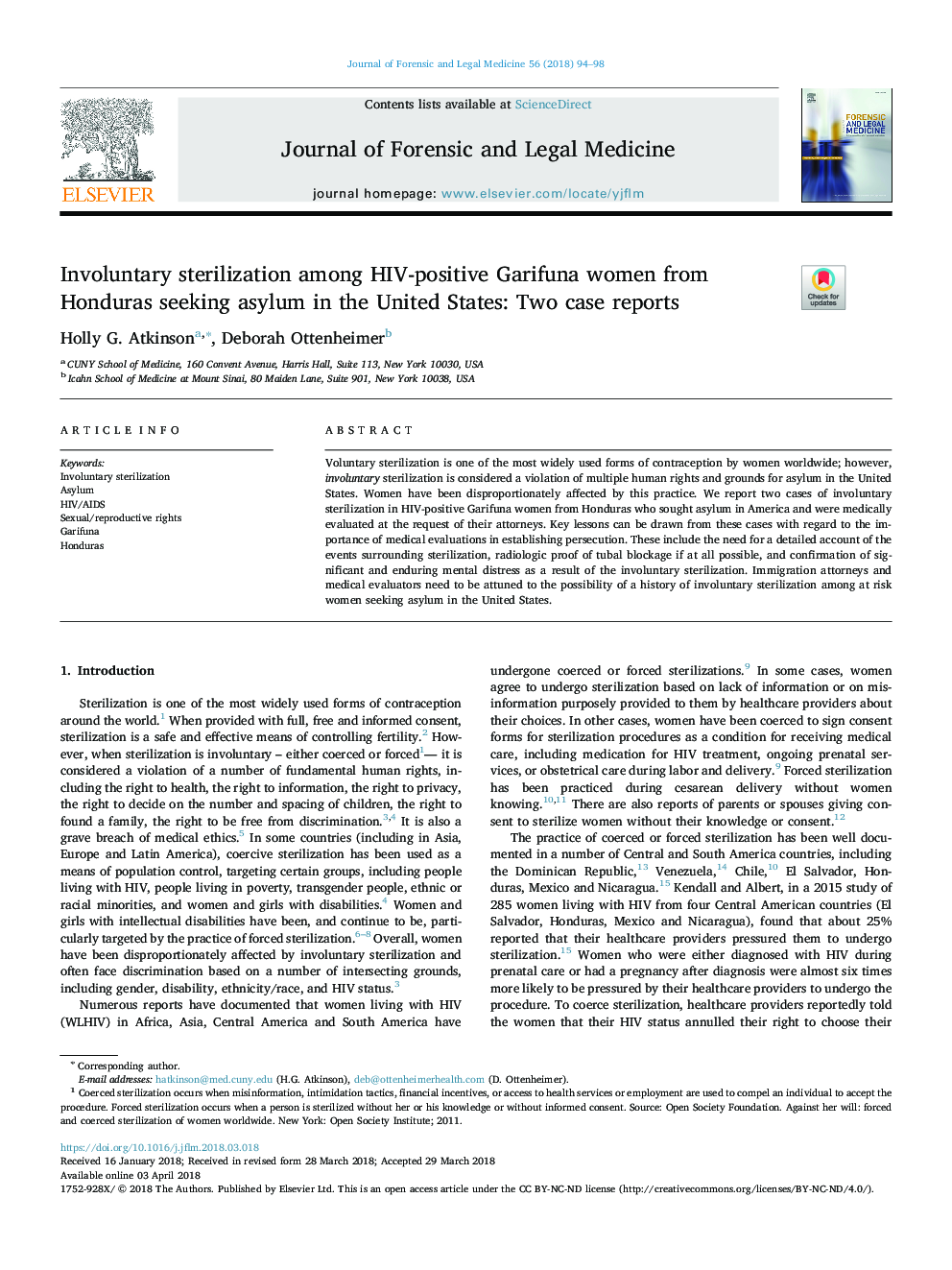| Article ID | Journal | Published Year | Pages | File Type |
|---|---|---|---|---|
| 6555000 | Journal of Forensic and Legal Medicine | 2018 | 5 Pages |
Abstract
Voluntary sterilization is one of the most widely used forms of contraception by women worldwide; however, involuntary sterilization is considered a violation of multiple human rights and grounds for asylum in the United States. Women have been disproportionately affected by this practice. We report two cases of involuntary sterilization in HIV-positive Garifuna women from Honduras who sought asylum in America and were medically evaluated at the request of their attorneys. Key lessons can be drawn from these cases with regard to the importance of medical evaluations in establishing persecution. These include the need for a detailed account of the events surrounding sterilization, radiologic proof of tubal blockage if at all possible, and confirmation of significant and enduring mental distress as a result of the involuntary sterilization. Immigration attorneys and medical evaluators need to be attuned to the possibility of a history of involuntary sterilization among at risk women seeking asylum in the United States.
Related Topics
Life Sciences
Biochemistry, Genetics and Molecular Biology
Genetics
Authors
Holly G. Atkinson, Deborah Ottenheimer,
